The view from both sides of the bin strike boundary
- Published
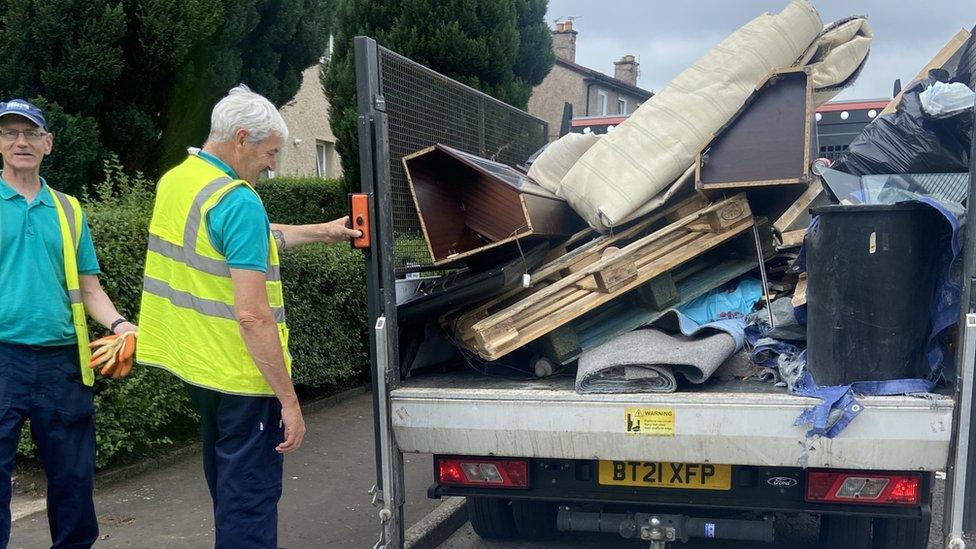
Refuse collectors in West Dunbartonshire lift waste just yards from the boundary with Glasgow
Glasgow's bins have not been emptied for the last week after refuse workers went on strike - but neighbouring West Dunbartonshire has not been affected by industrial action.
You can see a stark difference on the streets where Glasgow and Clydebank merge with one another on the boundary between the two areas.
The main artery of Great Western Road runs between the two local authorities, and also divides the Drumchapel area of Glasgow from the Drumry area of Clydebank.
The two areas are both populated by tenement-style housing, with shared refuse areas which can quickly become overflowing with rubbish.
St Eunan's Primary is located in Clydebank, just a few hundred yards from the boundary with Glasgow.
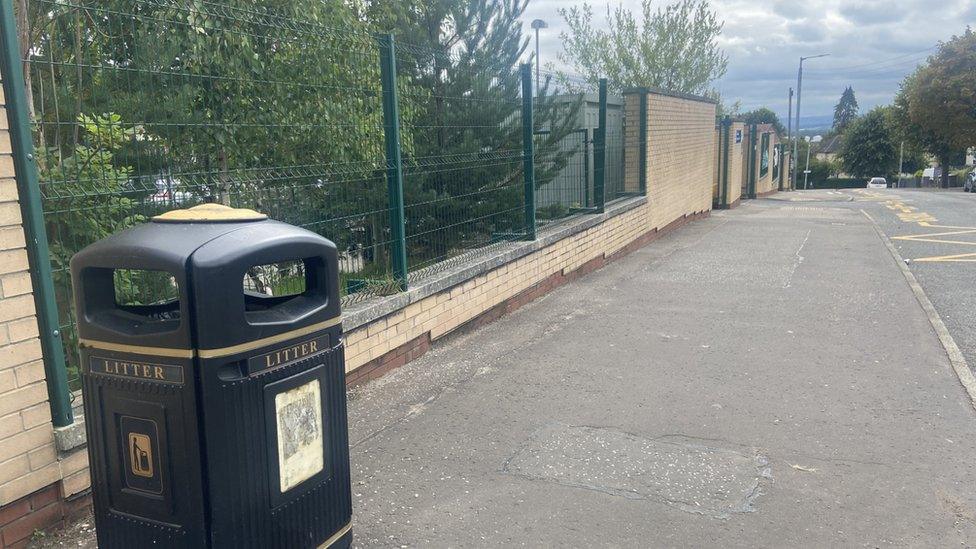
Bins outside St Eunan's school in Drumry
The bins and the streets outside the school are clean and tidy.
Antonine Primary in Drumchapel is about the same distance from the boundary.
A sign reading "no fly tipping" has clearly been ignored, as bags of rubbish lie within sight of the school's playground, and household wheelie bins on the road to the school are also overflowing.
Katie lives on Kendon Avenue, the street which leads to Antonine Primary, and her children go to the school.
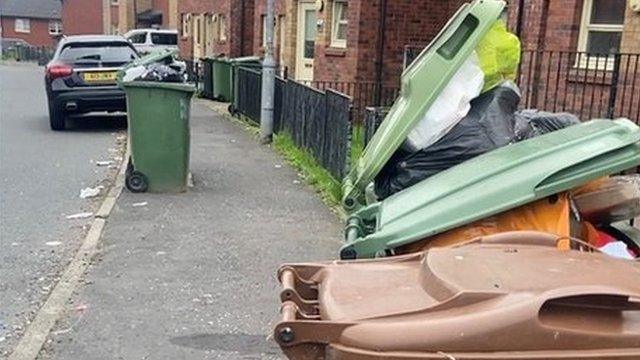
Bins on the street leading to Antonine Primary School in Drumchapel
She told BBC Scotland: "The street is a mess with rubbish and the flies are putting me off opening my windows.
"It's disgusting. The street is an extension of the bins at this point.
"I understand why the strikes are happening but they'll need to do something about the state of the street.
"My sister lives five minutes away in Drumry and her bins have been emptied."
Stefano's Fast Food restaurant is also on the Glasgow side of the street, located on Drumry Road East in Drumchapel.
Outside there was a pile of bin bags and waste encroaching onto the street.
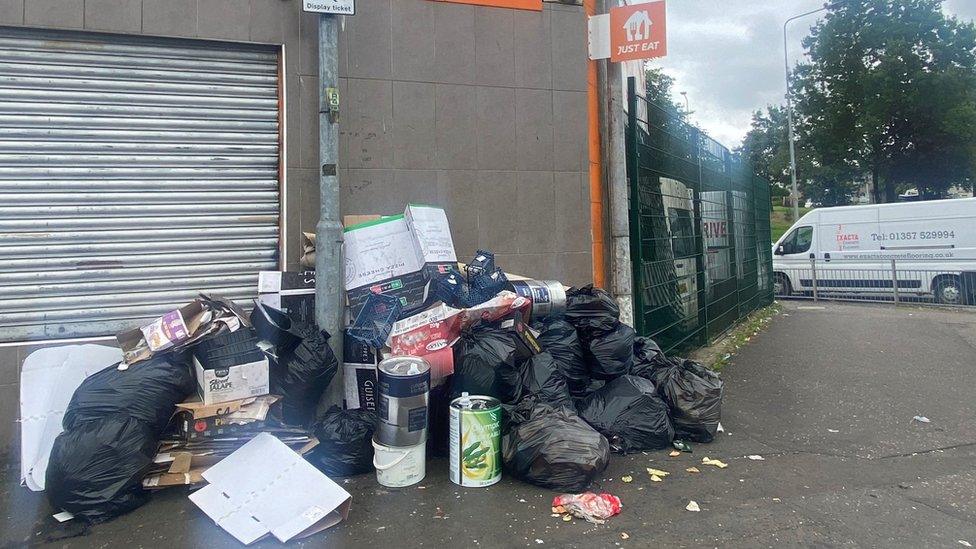
Stafano's is about 50 yards from the boundary with West Dunbartonshire
Onslow Road in Clydebank is only a few minutes' walk away on the opposite side of of Great Western Road.
There, however, a tidy row of domestic bins in line the street after having been emptied that morning.
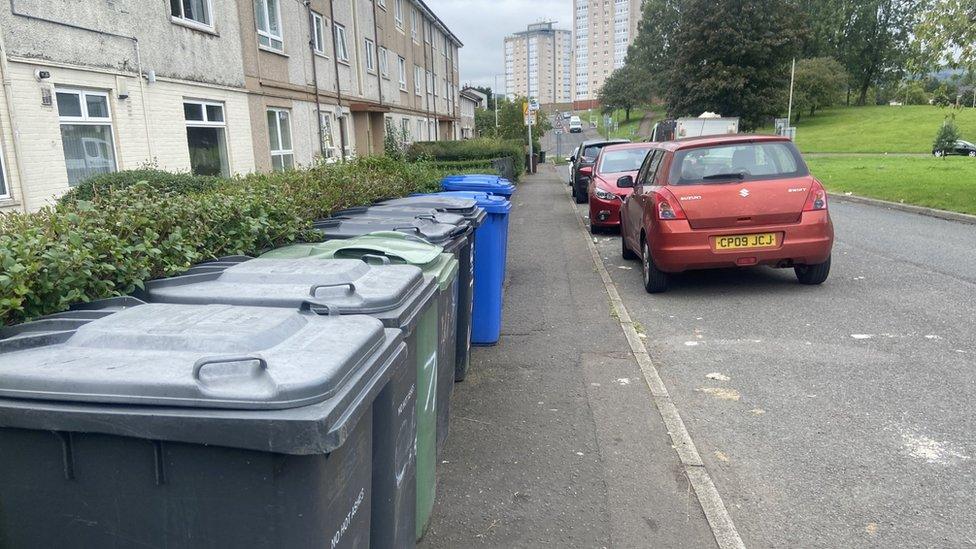
Empty bins on Onslow Road in Clydebank
The differences across the divide could also be seen in recyling areas which sit within the neighbouring council areas.
The local recycling point at Great Western Retail Park in Drumchapel is accessed from Great Western Road.
It is littered with black waste bags and residents struggle to donate clothes to the collection bins due to a lack of space.
The site is only a few yards from the front entrance of the Sainsbury's supermarket.
But a 10-minute walk along the road takes you to a recycling point in Clydebank where the street is clean and the facilities are not overflowing.
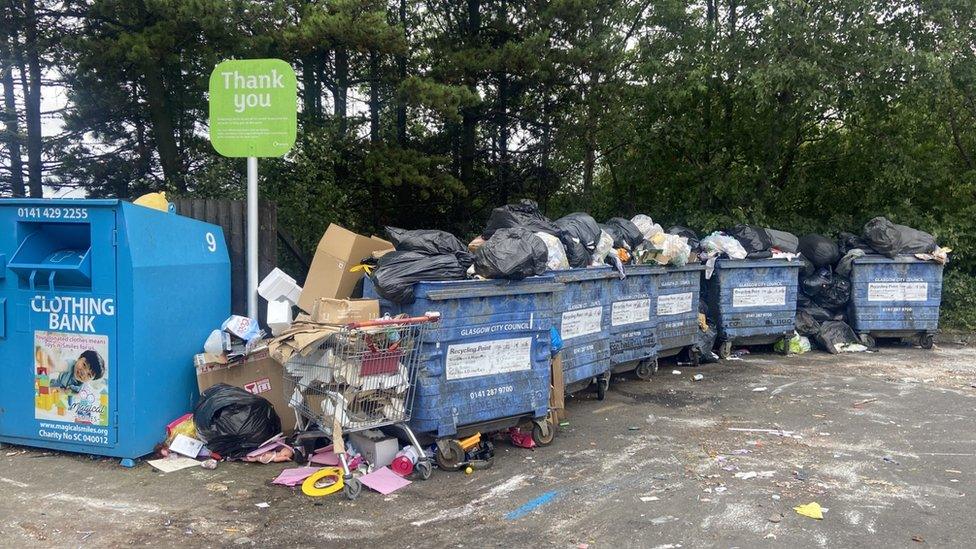
The overflowing recycling point in the Sainsbury's car park at the Great Western Retail Park
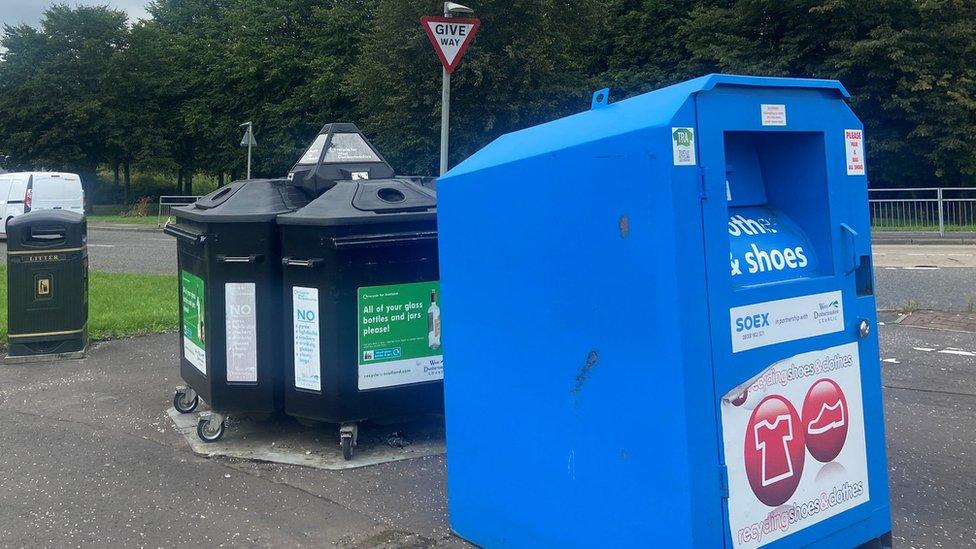
The recycling point in Clydebank, just yards from the Drumchapel boundary
The first wave of strikes, which will end on Thursday, took place in 21 of the 32 Scottish council areas. Further walk-outs are due to start next week in 25 areas, with schools also due to be affected.
The action is over pay, with unions seeking a similar agreement to the one made to council workers in England.
While Glasgow will again be affected by the next round of strikes, West Dunbartonshire will not.
The action is not taking place in every part of the country because the unions involved - Unite, Unison and the GMB - must hold individual strike ballots in each council area.
This means that different unions have different mandates for action in different council areas, and must meet legal requirements before they can call a strike in any individual area.
One refuse worker in West Dunbartonshire said staff there had been put on a pay band which had led to an increase in wages.
"If other councils are only offering 5% when inflation is through the roof, then what the council workers are actually being offered is a wage cut.
"I can understand why they're raging," he said.
Another worker said he was among the staff who lived in Glasgow but worked in West Dunbartonshire.
"We are emptying other people's bins and cleaning the streets, but our own street is a pig-sty," he said.
Workers have also voiced concerns that people may be travelling into the area from Glasgow and either fly-tipping or using recycling points and refuse centres, whuich could become overloaded.